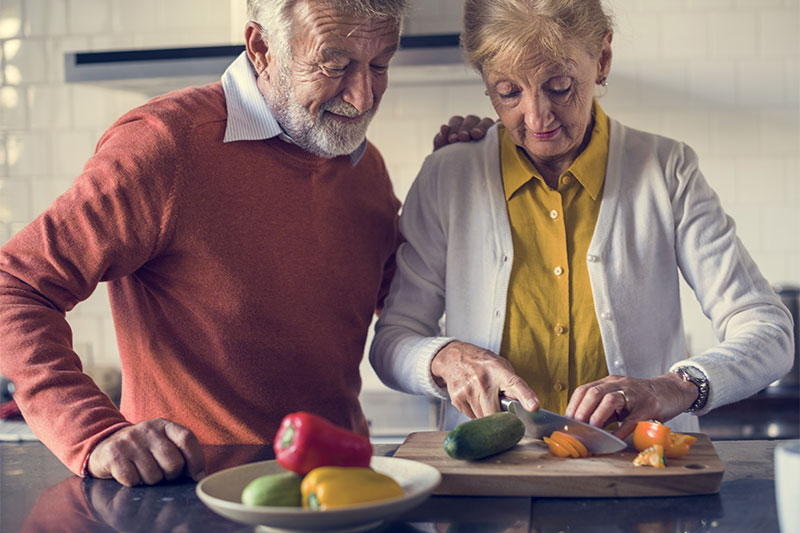
Dementia is not easy to define. A wide variety of diminished mental abilities might point to brain deterioration of some kind. Yes, dementia is scary, but it’s not a condition you develop overnight; it’s progressive and has many symptoms, some of which you can detect early on.
Doctors say there’s a good chance you’ll detect something wrong with your brain when cooking — after all, the activity should be easy enough for someone who knows its way around the kitchen. Here are a few early dementia signs to detect when cooking.
You Can’t Follow A Recipe
Following a recipe requires attention, memory, problem-solving skills and a few other mental skills. And although recipes are generally easy to follow, they might be a challenge for people with dementia or similar conditions.
Even following a number list of instructions can be increasingly difficult when there’s something wrong with your mind. You might miscalculate measurements, add the wrong ingredients or add them in the wrong order.
You Have Difficulty Chopping, Slicing and Dicing
Diminished coordination is a common sign of dementia, so if you feel clumsy or can seem to handle the knife like you used to, there might be something wrong. This also applies to whisking cream or batter at a steady rate, cracking eggs without making a mess and handling food in general.
Cooking is not all that difficult, but you do need to be focused, and that might not be an easy task if you’re facing cognitive challenges.
You Can’t Make Appliances Work
Using appliances, some as complicated as instant cookers, air fryers, or stand mixers, can be difficult for people experiencing early signs of dementia.
You need sharp problem-solving skills to handle cooking appliances, and that might prove difficult for some people. Of course, no one knows how to set the microwave clock, but at least we can use it. What’s dangerous here is that some appliances can be sharp or have powerful motors, and they can cause accidents if not used properly.
You keep on burning stuff
If you’re leaving the pots and pans unattended, and you’re burning dinner just too often, you might be experiencing brain lapses. These can be dangerous, especially if you’re cooking on the stovetop.
Patients with severe cases of dementia can simply walk away from the kitchen to do something else, which might lead to disaster. Cooking is a good way of seeing if you or someone close to you is experiencing mental challenges — after all, everyone notices when you burn dinner. You can’t hide from that.
Be Careful, My Friend!
Kitchens are generally safe, but they can be dangerous if you’re not yourself. From cutting your finger to burning down the house, things can go wrong. If you feel you can’t handle some cooking, get help.
Being distracted is one thing, but early signs of dementia can lead to more severe conditions. The good news? If you think there’s something wrong with you, talk to your doctor. He can help — especially if you detect signs of dementia in time.
And if you do have a cooking accident, fear not; it doesn’t necessarily mean there’s something wrong with you. It happens to all of us.


